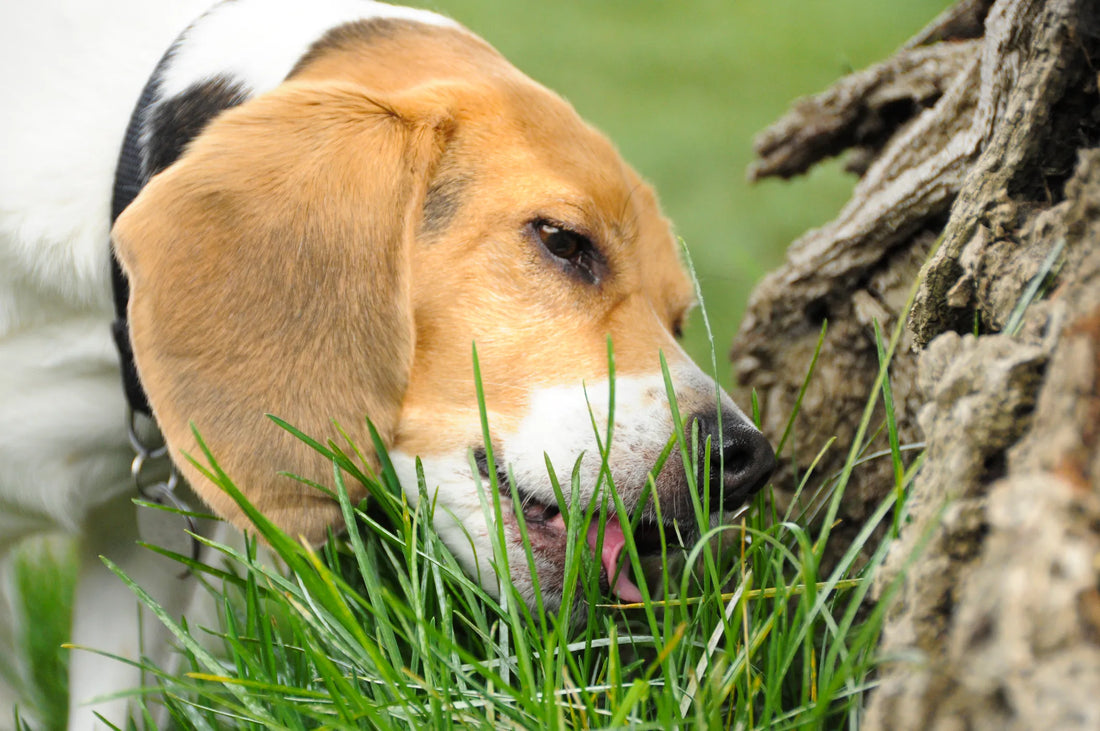
Why Do Dogs Eat Grass? Uncovering Common Myths
Share
If you’ve ever wondered Why Do Dogs Eat Grass, you might have wondered if it’s a sign of an upset stomach, a deficiency, or just a quirky habit. While this behavior is common, the reasons behind it aren’t always clear-cut. Many dog owners assume grass-eating means their pup feels sick, but in reality, there are multiple possible explanations—including dietary needs, instinct, and even simple enjoyment.
Let’s take a deeper look at why dogs eat grass and whether you should be concerned about it.
1. A Natural Instinct with a Purpose
Dogs are descendants of wild canines, like wolves and foxes, who consumed plants as part of their diet. While their primary food source was meat, their diet also included plant material—whether from the stomach contents of herbivore prey or directly from their environment. Even domesticated dogs have retained this instinct, and grazing on grass could simply be a natural behavior rather than a cause for alarm.
In some cases, this instinct might also serve a practical function. Some dogs appear to eat grass when they have mild digestive discomfort, as the rough texture may help trigger vomiting or stimulate bowel movements. However, since most dogs don’t vomit after eating grass, this likely isn’t the primary reason for the behavior.
2. The Role of Fiber in Your Dog’s Diet
One of the most compelling explanations for grass-eating is a potential lack of fiber in your dog’s diet. Fiber plays a crucial role in maintaining healthy digestion, promoting regular bowel movements, and supporting gut health. If your dog’s diet is low in fiber, they may instinctively seek out alternative sources—like grass—to help regulate their digestive system.
Many commercial dog foods, particularly lower-quality kibble, may not contain enough fiber or may include processed fibers that aren’t as beneficial as natural sources. Dogs fed primarily on high-protein, grain-free, or raw or homemade diets might also experience fiber deficiencies if their meals lack fibrous vegetables or other plant-based sources.
Grass contains insoluble fiber, which can help with stool formation and improve digestion. If your dog frequently seeks out grass, consider evaluating their diet. Adding fiber-rich ingredients such as pumpkin, sweet potatoes, carrots, or leafy greens to their meals could reduce their need to graze.
3. A Matter of Taste and Sensory Exploration
Some dogs simply enjoy eating grass. The texture, smell, and even the slight moisture content can make grass appealing, especially in the spring when it’s fresh and tender. Certain dogs may be more prone to grazing because they find it enjoyable or satisfying, much like some people enjoy crunchy snacks.
Additionally, dogs explore the world with their mouths, and grass is just another texture and flavor for them to investigate. Some dogs develop habits based on environmental factors—if they see other dogs eating grass, they may mimic the behavior.
For dogs that seem to eat grass out of boredom, ensuring they have enough mental and physical stimulation could help curb the behavior. Providing chew toys, puzzle feeders, or more outdoor activities might redirect their attention away from grass.
4. Should You Be Concerned?
In most cases, grass-eating is harmless, but there are situations where it could be a cause for concern:
- Excessive consumption: If your dog obsessively eats large amounts of grass daily, it might indicate a dietary imbalance or digestive issue.
- Vomiting frequently after eating grass: While occasional vomiting isn’t unusual, repeated incidents should be discussed with a vet.
- Grass treated with chemicals: Lawns treated with pesticides, herbicides, or fertilizers can be toxic to dogs. Always ensure your pup isn’t consuming chemically treated grass.
-
Presence of parasites: Outdoor grass can harbor parasites that may cause gastrointestinal problems in dogs.
If you suspect your dog’s grass-eating habit stems from a dietary deficiency, consult your veterinarian to assess their fiber intake and overall nutrition.
Final Thoughts
While the sight of your dog munching on grass may seem odd, it’s usually nothing to worry about. In many cases, it’s a natural behavior, a dietary supplement, or simply a preference for taste and texture. However, if the behavior becomes excessive or is accompanied by digestive issues, it’s worth taking a closer look at their diet and health.
If your dog seems to crave grass regularly, consider incorporating fiber-rich foods into their diet to see if it makes a difference. And, as always, keep an eye on their overall health and consult a vet if you notice anything unusual.
So, next time you catch your pup nibbling on some grass, you’ll have a better idea of Why Do Dogs Eat Grass—and whether it’s just a snack or a sign of something more.
